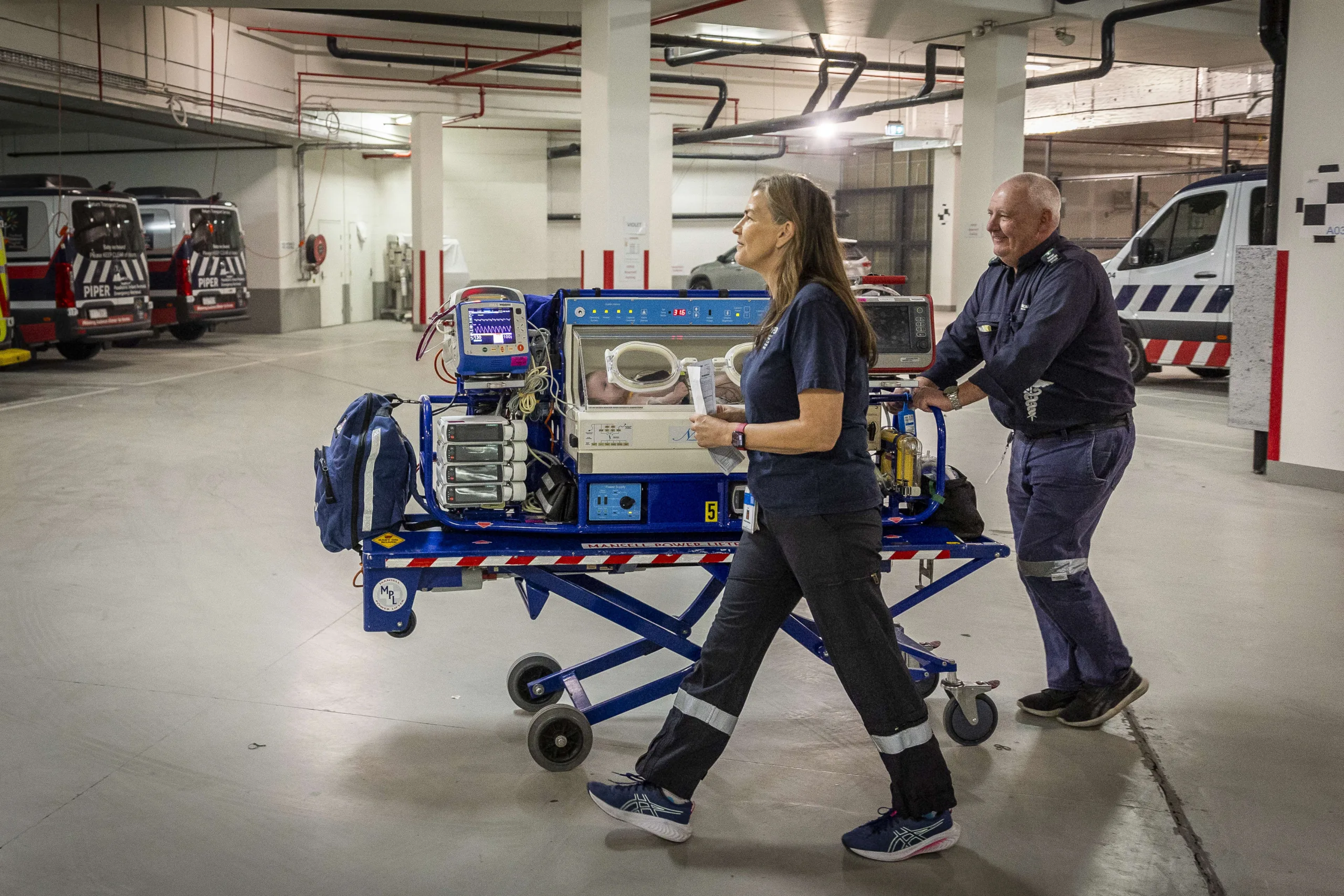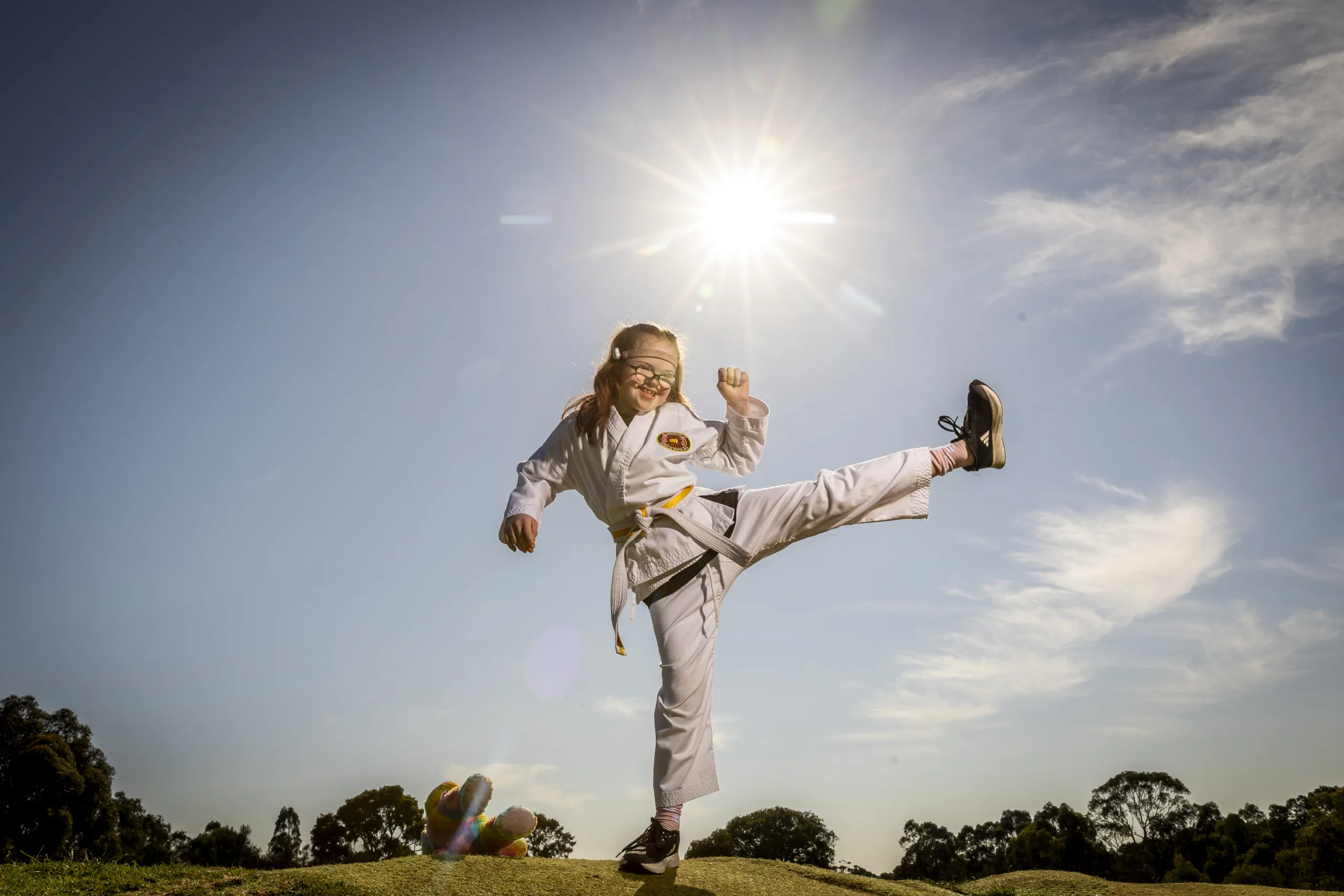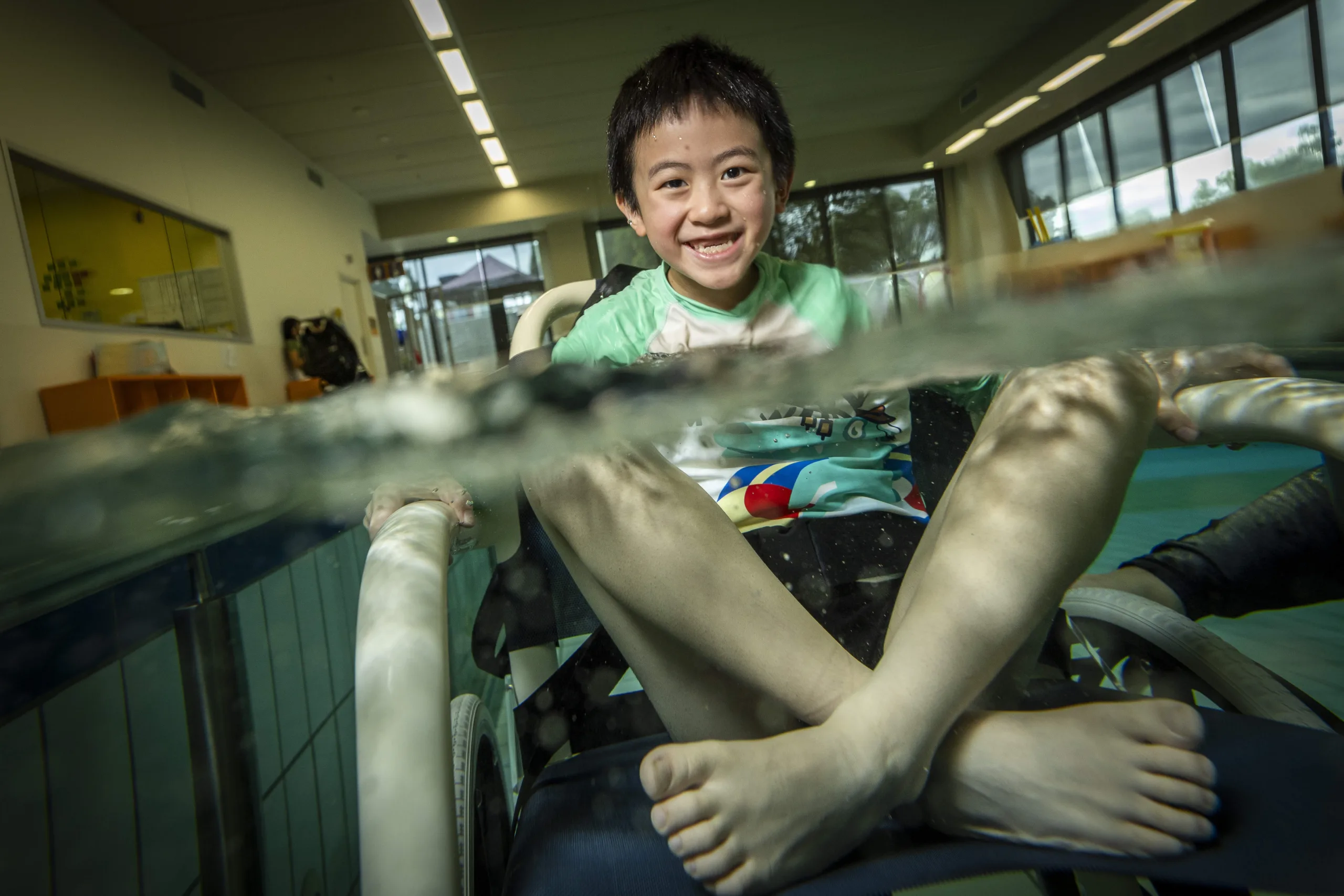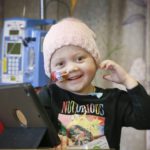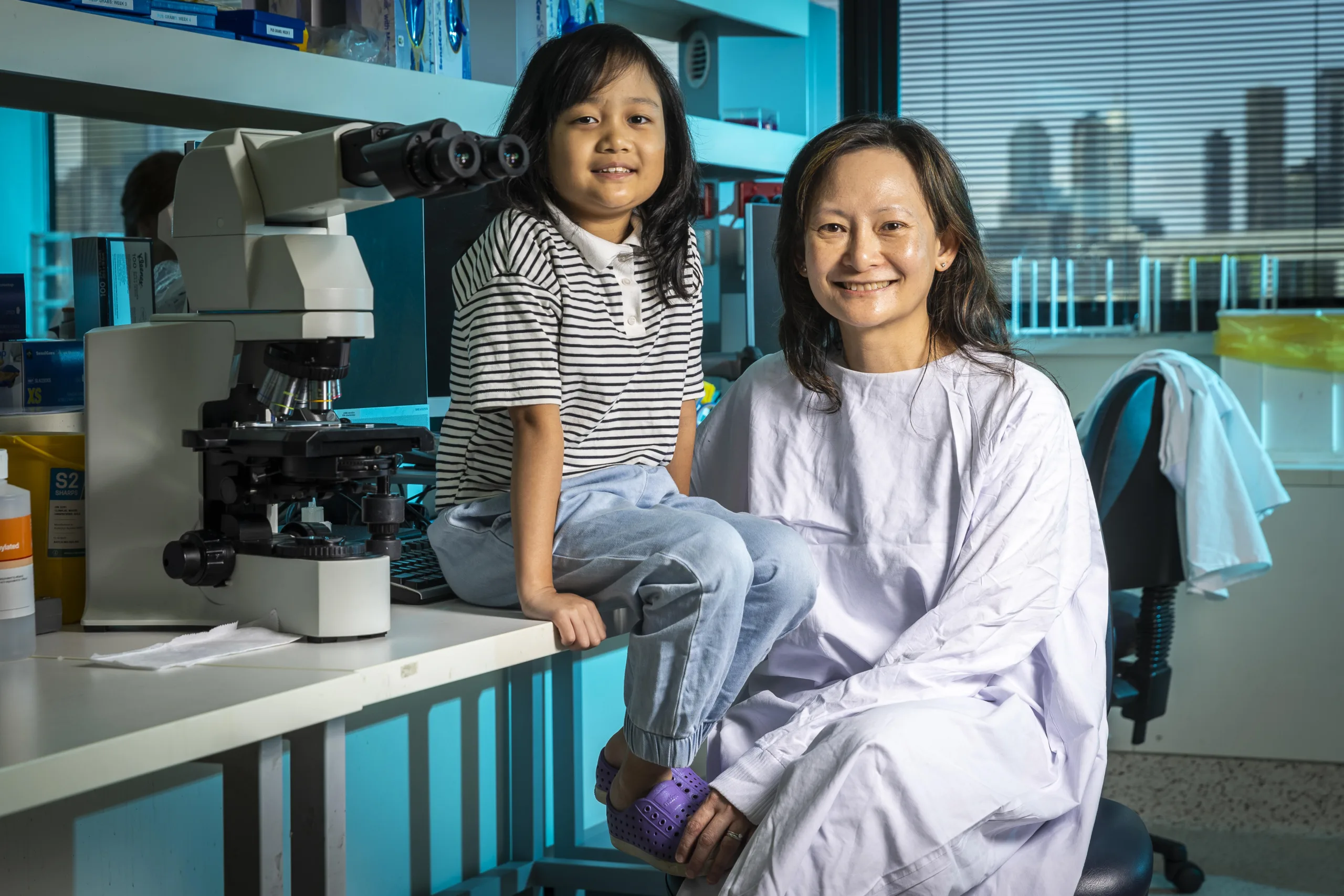
No Greater Love for Trisha
Michelle's work as a senior scientist at the Royal Children’s Hospital medical laboratory means she has made important contributions to the health of countless patients.
But Michelle unlocked another level of generosity for her 11-year-old daughter Trisha. She donated her kidney.
“We would do anything for our kids,” Michelle said. “I had a perfectly working kidney, and I was happy to share.”
Trisha has been treated at the RCH for multiple medical conditions for most of her life. But her primary condition was end stage renal disease, or kidney failure.
She was put on dialysis, sometimes up to four times a week, due to decreasing kidney function. But as her condition worsened, the team at the RCH performed an urgent transplant, using one of Michelle’s kidneys.
Trisha’s clinician, Dr Tom Forbes, said it’s common for family members to donate a kidney to a nearest and dearest in need.
“We encourage families to consider donating to their children,” Dr Forbes said. “It comes with a high degree of matching.”
He added: “Michelle was willing to donate her kidney to Trisha. It was the ultimate gift.”
Michelle said a viral infection triggered Trisha’s kidney journey.
“We knew she would need a kidney transplant down the track.”
Michelle had her kidney harvested at the Austin Hospital in the morning, and it was taken to the RCH that afternoon for the transplant.
“It went very smooth,” she said, “and since then, it’s been milestone after milestone.”
Trisha has returned to the classroom – she is a year 6 student – after missing large chunks of school due to her various ailments. She has also sashayed back to another favourite: dance classes.
Most people with end stage renal disease will need more than one transplant during their lifetime. Trisha will likely remain an outpatient at the RCH.
Michelle said her medical knowledge was a mixed blessing during Trisha’s darkest days.
“Sometimes ignorance is bliss. It’s a lot easier not knowing,” Michelle said.
“But having said that, I’m in an industry where you have to know. There is no escape from reality. You have to face it as it comes, and that’s what we did.”
“You pray sometimes that it doesn’t happen to your child. But if it does, we’re in the right place to be helped.”
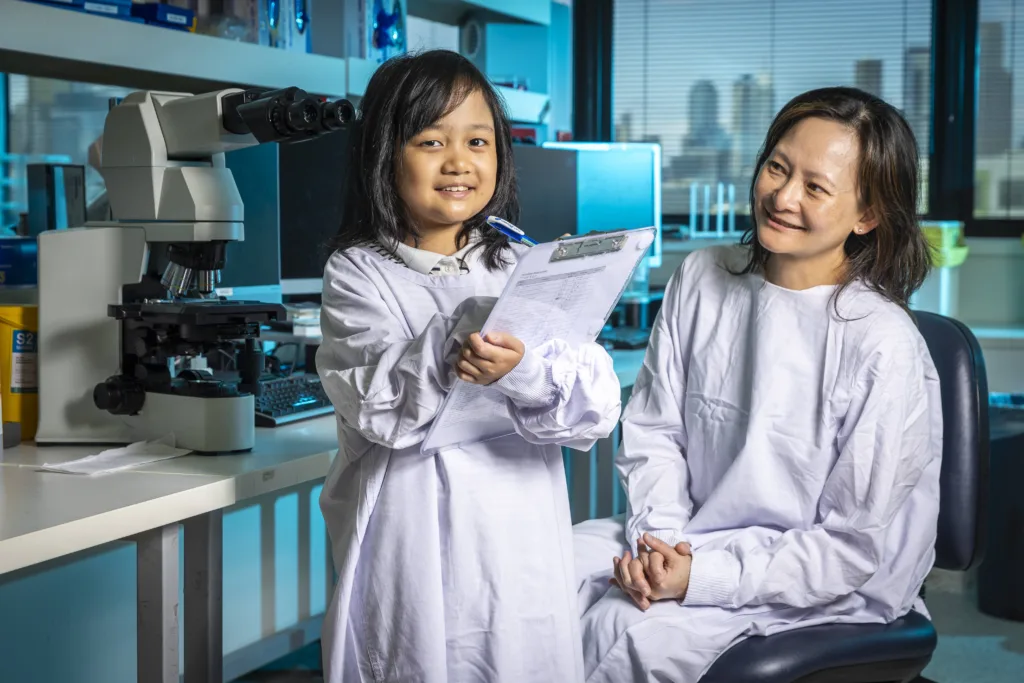
Meanwhile, Trisha, who has named her donated kidney Clyde, is doing well. Since the transplant, she says food tastes delicious again. “I feel better.” Trisha said. “I feel good.”
Dr Forbes said Trisha and Michelle’s optimistic outlook helped with her recovery.
“The positivity and love they brought to every moment of their care, no matter how adverse it seemed … has gone a long way to their happiness,” he said. Michelle says Trisha did the hard work.
“To go through all she did, and come out smiling, is amazing. It shows her resilience,” Michelle said. “Now, we’re back to being busy, we’ve got holidays booked, and we’re looking forward to more milestones.”
Written by Nui Te Koha
Images by Jake Nowakowski
Published in the Herald Sun April 2025

